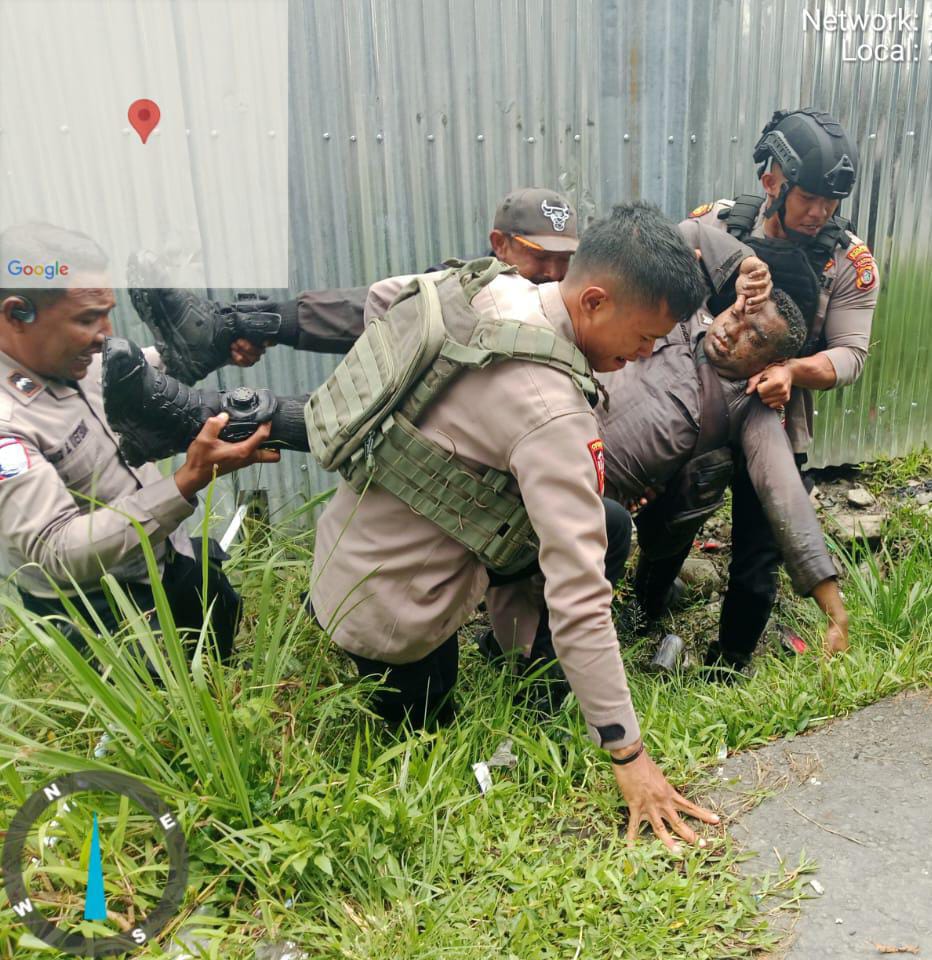Amnesty International : Human Rights Situation Worsens in the First 100 Days of Indonesian Prabowo-Gibran Administration
JAKARTA, RAKYAT NEWS – The human rights situation during the first 100 days of the Prabowo-Gibran administration has drawn criticism from Amnesty International Indonesia, citing ongoing violations and regression in rights protections.
Between October 20, 2024, and January 20, 2025, the organization observed numerous human rights violations that were seemingly legitimized through policies, decisions, and statements made by public officials.
Ordinary citizens, including children, have faced criminalization, intimidation, and extrajudicial violence. Indigenous communities and fishermen have lost access to their lands, seas, and natural resources. Discrimination against women and religious minorities remains pervasive, and the death penalty continues to be imposed.
According to Amnesty International, these issues reflect a continuation of setbacks from the previous administration under President Jokowi, with minimal efforts for improvement by the new government.
Usman Hamid, Executive Director of Amnesty International Indonesia, remarked that the current administration appears to lack an understanding of the importance of human rights.
He emphasized that political freedoms and social justice are fundamental pillars upheld by nations worldwide. Without genuine reforms, the government risks repeating the failures of past administrations.
Usman noted that many human rights violations occurring now are direct extensions of those from the previous era. He added that failing to address them constitutes a violation in itself.
Referencing Indonesian author Pramoedya Ananta Toer’s metaphor of a “backward current,” Usman described the decline of human rights in the new government’s first 100 days.
Denial of Past Human Rights Violations
From the outset, the administration’s approach to human rights has been troubling.
On his first day in office, Coordinating Minister for Law, Human Rights, Immigration, and Corrections, Yusril Ihza Mahendra, made controversial remarks denying past serious human rights violations in Indonesia, including the events of 1998.
Although he later retracted his statement, Yusril’s focus on “looking forward, not back” was criticized for lacking an understanding of historical justice.
Usman argued that this stance undermines accountability and justice, further eroding trust in the government’s commitment to human rights.
Numerous cases during this period serve as a warning sign for the administration. Without addressing these issues, the government risks continued regression.
Past atrocities such as the 1965 tragedy, the Trisakti shootings, and the murder of activist Munir remain unresolved, perpetuating a culture of impunity.
Usman called on the government to show genuine commitment to resolving past human rights violations and delivering justice to victims.
Extrajudicial Killings and Violence
Extrajudicial killings by security forces have been among the most glaring violations during this period.
Amnesty International Indonesia documented 17 such incidents between October and December 2024, resulting in the deaths of 17 civilians.
One case involved TNI personnel attacking residents in Deli Serdang, North Sumatra, killing one and injuring others.
In Semarang, Central Java, a police officer fatally shot a student, falsely claiming he was a gang member.
Similar incidents continued into 2025, including the killing of a car rental businessman by TNI personnel on the Tangerang-Merak toll road.
Usman criticized the government for failing to break the cycle of violence and impunity within the police and military.
He called for perpetrators to be held accountable through transparent legal processes.
Security institutions often dismiss such cases as the actions of “rogue officers,” avoiding institutional responsibility.
Freedom of Expression Under Threat
Freedom of expression remains severely restricted, with the Electronic Information and Transactions (ITE) Law frequently used to criminalize dissent.
A notable case involved a worker, Septia Dwi Pertiwi, who was acquitted after facing defamation charges for speaking out against workplace injustices.
Amnesty International Indonesia recorded 527 cases of freedom of expression violations under the ITE Law between 2019 and 2024.
Journalists and critics of government programs have faced intimidation. For instance, journalists covering the Free Nutrition Meals (MBG) program reported harassment and confiscation of equipment.
Public officials have also made disparaging comments against critics, further stifling open dialogue.
Even lawmakers have faced repercussions for criticizing government policies, signaling a growing intolerance for dissent.
Development Projects and Indigenous Rights
Development projects continue to harm indigenous communities, with minimal consultation or compensation.
The food estate project in Papua and North Sumatra has sparked protests, as it threatens indigenous land rights.
Similarly, the Eco-Rempang City project has displaced residents and prompted widespread unrest.
Fishermen’s livelihoods have also been disrupted by sea barriers in coastal areas, though the government has begun dismantling some barriers.
Usman urged the government to respect indigenous rights and ensure development projects are conducted responsibly.
Gender and Religious Discrimination
Policies promoting gender discrimination have also drawn criticism.
A new regulation allowing polygamy among Jakarta civil servants has been condemned for degrading women’s rights.
Religious minorities continue to face intolerance, with bans on community events and opposition to places of worship.
Usman called for the government to take a firm stand against all forms of religious discrimination.
The Death Penalty Persists
The courts have continued to impose the death penalty, with 14 sentences handed down in late 2024, primarily for drug-related offenses.
Usman criticized the state’s failure to explore humane alternatives and called for an immediate moratorium on executions.
He emphasized that abolishing the death penalty would signal Indonesia’s commitment to upholding human rights.
The first 100 days of the Prabowo-Gibran administration have highlighted a concerning lack of progress on human rights. Amnesty International Indonesia continues to call for urgent reforms to prevent further deterioration. (Uki Ruknuddin)



























Tinggalkan Balasan